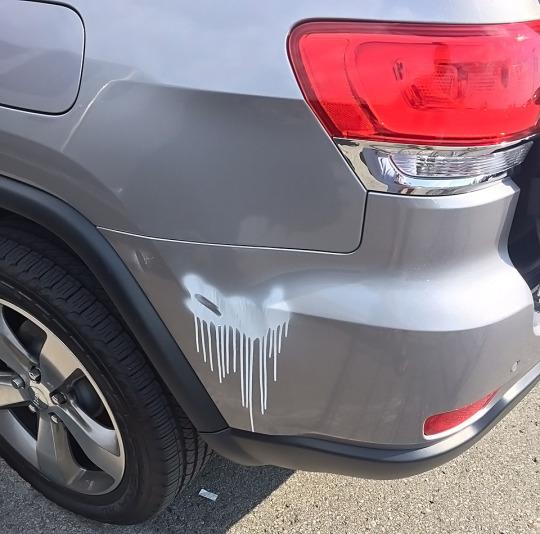As the weather gets warmer, many of us will be reaching for bug spray to keep those pesky insects at bay. But before you spray your car with bug repellent, you may want to think twice. Bug spray can contain harsh chemicals that can damage your car’s paint job.
If you’re like most people, you probably don’t think twice about spraying bug spray on your car when you’re driving. After all, it’s just a little bit of chemicals, right? Wrong.
Bug spray can actually damage your car’s paint if you’re not careful. Here’s what you need to know to avoid damaging your car’s paint with bug spray.
First, it’s important to understand that bug sprays contain chemicals that can be harmful to your car’s paint.
These chemicals can etch into the paint and cause permanent damage. In addition, they can also strip away the protective wax coating on your car’s paint, leaving it vulnerable to further damage from the elements.
So how do you avoid damaging your car’s paint with bug spray?
The best way is to simply avoid spraying it directly onto the paint. If you must use bug spray, apply it to a cloth first and then wipe down the affected area. This will help to protect your car’s paint from direct contact with the chemicals.
In short, yes, bug spray can damage your car’s paint if you’re not careful. But if you take a few simple precautions, you can avoid any potential problems. Just be sure to avoid spraying directly onto the paint and always follow up with a good waxing once you’ve removed all of the bugs!

Credit: autos.yahoo.com
What Bug Spray is Best for Cars
There are a few different types of bug sprays that can be used on cars, but not all of them are created equal. Some bug sprays contain chemicals that can damage the paint or make the upholstery sticky, so it’s important to choose one that is specifically designed for use on vehicles. Here are some things to look for when choosing a bug spray for your car:
-Choose a water-based formula to avoid damaging the paint.
-Look for a spray with natural ingredients like essential oils, which will repel bugs without being harmful to people or pets.
-Avoid aerosolers and foggers, which can leave behind a messy residue.
-Make sure the spray can reach all areas of the car, including under the seats and in crevices where bugs like to hide.
How Do I Apply Bug Spray to My Car
Assuming you would like tips on how to protect your car from bugs:
One way to help keep bugs from splattering your windshield while you’re driving is to treat your car like you would your body. In other words, apply insect repellent before you get in and close the door.
If possible, park in a garage or under an awning so you can avoid applying bug spray directly to your car’s paint job. But if that’s not an option, don’t worry—just be sure to use a light touch when spraying, and avoid getting any repellent on plastic or rubber parts, which could cause them to degrade over time. Also, it’s always best to test any new product on a small area of your car first to make sure it won’t damage the finish.
Will Bug Spray Damage My Car’S Paint Job
Most bug sprays contain chemicals that can be damaging to your car’s paint job if not used properly. Bug spray should always be applied to a clean, dry surface and should never be allowed to sit on the paint for more than a few minutes. When applying bug spray to your car, be sure to use a soft cloth or sponge and avoid scrubbing the paint.
Rinse the area thoroughly with water after applying the bug spray and dry it with a soft towel.
Fix Bug Damage to Paint
Conclusion
It’s summertime, which means it’s time to break out the bug spray. But before you do, you might want to think twice about spraying it on your car. Bug spray can actually damage your car’s paint if it’s not removed immediately.
The chemicals in bug spray can eat away at your paint, causing it to peel and flake off. If you do accidentally get bug spray on your car, be sure to wash it off as soon as possible.
